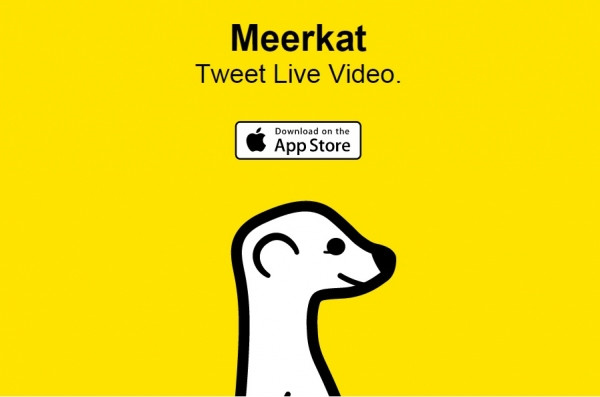Video-streaming app Meerkat was looking like it could be the next Waze, until Twitter pulled the rug out from under it.
Meerkat was launched to near-instant fame by Life on Air, an app development company founded by three young Israelis and based in Tel Aviv and San Francisco.
Originally meant as an experimental side project for Life on Air, Meerkat has become the startup’s sole focus as usage skyrocketed within days of its late February introduction. The mobile app let users share live video with their Twitter followers via a single click, and followers do not have to download the app in order to join in.
After just three days, Meerkat claimed about 15,000 users (including Ashton Kutcher and Gary Vaynerchuk) and 8,000 video streams, according to CEO Ben Rubin, 27. He founded Life on Air, then called Yevvo Entertainment, in 2011 with VP Product Uri Haramati, 35, and CTO Itai Danino, 29. Danino reportedly built Meerkat in a matter of eight weeks.
On March 10, CNBC used Meerkat to livestream to Twitter followers as Mad Money host Jim Cramer rang the opening bell at the New York Stock Exchange to celebrate the show’s 10th anniversary. Top publishers including the Wall Street Journal, The Guardian, Business Insider, The Verge, Variety and Huffington Post touted Meerkat’s trajectory and ease of use for anyone with an iPhone and a Twitter account.
There was even speculation that Twitter might decide to acquire Life on Air. But that’s not what happened. On March 14, Twitter announced its acquisition of livestreaming app Periscope, and simultaneously cut off Meerkat’s access, according to news reports.
Rubin told TechCrunch reporter Josh Constine that Meerkat is “here to stay” and is now “working on creative ways to help new users to build a graph” inside Meerkat.
Even before the Twitter-Meerkat breakup, however, there was speculation that Meerkat’s star could burn out just as quickly as it lit up the mobile firmament.
Gizmodo’s Darren Orf wrote, somewhat prophetically: “Whether or not Meerkat will be the latest flash in the pan or survive this early hype period to become a social media mainstay (remember Ello?) is unclear, but what is clear is that Twitter will adopt livestreaming in some form.”
PC Magazine’s Max Eddy also unwittingly predicted the future: “Meerkat feels a bit unfinished right now. I think it needs to separate itself from Twitter somewhat and dramatically improve the experience of using the app. … I can easily imagine journalists and podcasters using Meerkat to host live interviews or shows, or protestors and the politically minded using it to broadcast encounters with the police. … Whether or not Meerkat streams catch on is another matter altogether.”
Meanwhile, the company has raised about $4 million in venture capital from investors including Israeli VC fund Aleph. Previous products included Yevvo, which went viral briefly in 2013, and Air (http://getair.co/), which enables users to broadcast videos to friends by invitation only.















